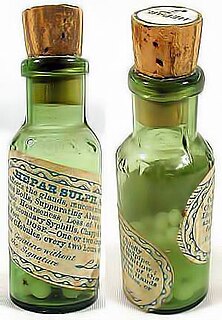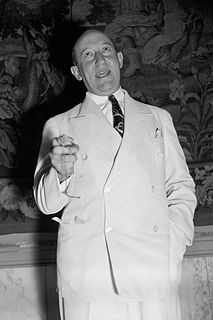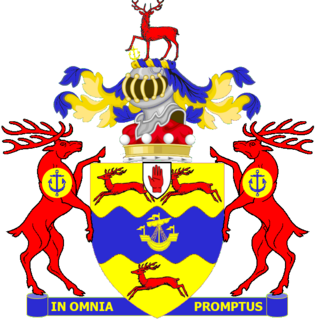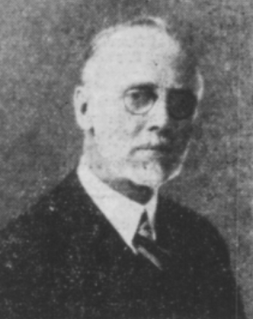Eric James Trimmer | |
|---|---|
 | |
| Born | 11 June 1923 |
| Died | 28 November 1998 (aged 75) |
| Occupation | General practitioner, medical writer |
Eric James Trimmer (11 June 1923 - 28 November 1998) was an English general practitioner and medical writer.
Eric James Trimmer | |
|---|---|
 | |
| Born | 11 June 1923 |
| Died | 28 November 1998 (aged 75) |
| Occupation | General practitioner, medical writer |
Eric James Trimmer (11 June 1923 - 28 November 1998) was an English general practitioner and medical writer.
Trimmer was born on 11 June 1923 in London. [1] [2] He was educated at King's College London and obtained his M.B.B.S. [2] In 1947 he qualified M.R.C.S. and L.R.C.P. at Westminster Hospital. [2] In the 1950s he worked as a general practitioner in Pinner and as a medical journalist. [2] From 1967 he was a medical advisor for the Reader's Digest . [2] Trimmer was a fellow and council member of the Royal Society of Medicine. He was a member of the British Medical Association, Royal College of General Practitioners and the Royal Society of Health. [2]
Trimmer was the medical editor of Medical News. [3] He was the editor of the British Journal of Sexual Medicine and the British Journal of Clinical Practice for eight years. He was the medical director of the Medical Tribune Group. [3] Trimmer was the medical editor-in-chief for The Visual Dictionary of Sex, published in 1977. [4]
He married Marjorie Rudge in 1947, they had two children. [2] Trimmer used the pseudonyms Eric Jameson and Dr. Philip Lawson. [5]
A notable work Trimmer authored was The Natural History of Quackery which documented the history of quackery. [6] [7] [8] He authored the book under the pseudonym Eric Jameson in 1961. He published under the pseudonym because the General Medical Council advised him that publication under his own name would constitute advertisement. [3]
Alternative medicine describes any practice that aims to achieve the healing effects of medicine, but which lacks biological plausibility and is untested, untestable or proven ineffective. Complementary medicine (CM), complementary and alternative medicine (CAM), integrated medicine or integrative medicine (IM), and holistic medicine are among many rebrandings of the same phenomenon. Alternative therapies share in common that they reside outside medical science, and rely on pseudoscience. Traditional practices become "alternative" when used outside their original settings without proper scientific explanation and evidence. Frequently used derogatory terms for the alternative are new-age or pseudo, with little distinction from quackery.

A physician, medical practitioner, medical doctor, or simply doctor, is a professional who practises medicine, which is concerned with promoting, maintaining, or restoring health through the study, diagnosis, prognosis and treatment of disease, injury, and other physical and mental impairments. Physicians may focus their practice on certain disease categories, types of patients, and methods of treatment—known as specialities—or they may assume responsibility for the provision of continuing and comprehensive medical care to individuals, families, and communities—known as general practice. Medical practice properly requires both a detailed knowledge of the academic disciplines, such as anatomy and physiology, underlying diseases and their treatment—the science of medicine—and also a decent competence in its applied practice—the art or craft of medicine.

Naturopathy or naturopathic medicine is a form of alternative medicine that employs an array of pseudoscientific practices branded as "natural", "non-invasive", or promoting "self-healing". The ideology and methods of naturopathy are based on vitalism and folk medicine, rather than evidence-based medicine (EBM). Naturopathic practitioners generally recommend against following modern medical practices, including but not limited to medical testing, drugs, vaccinations, and surgery. Instead, naturopathic practice relies on unscientific notions, often leading naturopaths to diagnoses and treatments that have no factual merit.

Quackery, often synonymous with health fraud, is the promotion of fraudulent or ignorant medical practices. A quack is a "fraudulent or ignorant pretender to medical skill" or "a person who pretends, professionally or publicly, to have skill, knowledge, qualification or credentials they do not possess; a charlatan or snake oil salesman". The term quack is a clipped form of the archaic term quacksalver, from Dutch: kwakzalver a "hawker of salve". In the Middle Ages the term quack meant "shouting". The quacksalvers sold their wares on the market shouting in a loud voice.

The history of alternative medicine refers to the history of a group of diverse medical practices that were collectively promoted as "alternative medicine" beginning in the 1970s, to the collection of individual histories of members of that group, or to the history of western medical practices that were labeled "irregular practices" by the western medical establishment. It includes the histories of complementary medicine and of integrative medicine. "Alternative medicine" is a loosely defined and very diverse set of products, practices, and theories that are perceived by its users to have the healing effects of medicine, but do not originate from evidence gathered using the scientific method, are not part of biomedicine, or are contradicted by scientific evidence or established science. "Biomedicine" is that part of medical science that applies principles of anatomy, physics, chemistry, biology, physiology, and other natural sciences to clinical practice, using scientific methods to establish the effectiveness of that practice.

Stephen Joel Barrett is an American retired psychiatrist, author, co-founder of the National Council Against Health Fraud (NCAHF), and the webmaster of Quackwatch. He runs a number of websites dealing with quackery and health fraud. He focuses on consumer protection, medical ethics, and scientific skepticism.
Quackwatch is a United States–based website, self-described as a "network of people" founded by Stephen Barrett, which aims to "combat health-related frauds, myths, fads, fallacies, and misconduct" and to focus on "quackery-related information that is difficult or impossible to get elsewhere". Since 1996 it has operated the alternative medicine watchdog website quackwatch.org, which advises the public on unproven or ineffective alternative medicine remedies. The site contains articles and other information criticizing many forms of alternative medicine.

Morris Fishbein M.D. was a physician who became the editor of the Journal of the American Medical Association (JAMA) from 1924 to 1950.
A medical speciality is a branch of medical practice that is focused on a defined group of patients, diseases, skills, or philosophy. Examples include children (pediatrics), cancer (oncology), laboratory medicine (pathology), or primary care. After completing medical school, physicians or surgeons usually further their medical education in a specific specialty of medicine by completing a multiple-year residency to become a medical specialist.
An evidence-based practice (EBP) is any practice that relies on scientific and mathematical evidence to form strong inductive or deductive arguments for guidance and decision-making. Practices that are not evidence-based may rely on tradition, intuition, or other unproven methods. Evidence-based practices have been gaining ground since the formal introduction of evidence-based medicine in 1992, and have spread to the allied health professions, education, management, law, public policy, and other fields. In light of studies showing problems in scientific research, there is also a movement to apply evidence-based practices in scientific research itself. Research into the evidence-based practice of science is called metascience.

Siddha medicine is a traditional medicine originating in Tamil Nadu, India and practiced over centuries. The Ministry of Ayurveda, Yoga and Naturopathy, Unani, Siddha and Homoeopathy of the Government of India regulates training in Siddha medicine and other traditional practices grouped collectively as AYUSH. Practitioners are called siddhars, and may have formal training with advanced degrees, such as BSMS, MD or Doctor of Philosophy (PhD). The Central Council of Indian Medicine, a statutory body established in 1971 under AYUSH, monitors education in areas of rural Indian medicine, including Siddha medicine.
David Lawrence Sackett, was an American-Canadian physician and a pioneer in evidence-based medicine. He is known as one of the fathers of Evidence-Based Medicine. He founded the first department of clinical epidemiology in Canada at McMaster University, and the Oxford Centre for Evidence-Based Medicine. He is well known for his textbooks Clinical Epidemiology and Evidence-Based Medicine.

John Nicolas Rea, 3rd Baron Rea, commonly known as Nicolas Rea, is a British hereditary peer, doctor and politician.

Radionics—also called electromagnetic therapy (EMT) and the Abrams Method—is a form of alternative medicine that claims that disease can be diagnosed and treated by applying electromagnetic radiation (EMR), such as radio waves, to the body from an electrically powered device. It is similar to magnet therapy, which also applies EMR to the body but uses a magnet that generates a static electromagnetic field.
DeForest Clinton Jarvis was an American physician from Vermont. He is best known for his writings on the subject of folk medicine. He recommended a mixture of raw apple cider vinegar and honey that has variously been called switchel or honegar, as a health tonic. He promoted the use of vinegar to keep the acidity of the body more acidic than alkaline, which he believed treated medical problems like burns and varicose veins.
Physician writers are physicians who write creatively in fields outside their practice of medicine.

Kenneth Macfarlane Walker was a British author, philosopher and urological surgeon.
Ian Douglas-Wilson was a British physician who was editor of The Lancet, a United Kingdom-based medical journal, from 1965 to 1976.

Arthur Joseph Cramp was a medical doctor, researcher, and writer. He served as director of the American Medical Association's (AMA) Propaganda for Reform Department from 1906 to 1936. He was a regular contributor to the Journal of American Medical Association (JAMA). Cramp was "a bitter opponent of proprietary and medicinal abuses." His three volume series on 'Nostrums and Quackery', along with his public lectures to schools, professional groups, and civic organizations across the country, helped bring awareness to the problem of patent medicines or nostrums, by subjecting the claims to scientific analysis. He was critical the 1906 Pure Food and Drug Act, and advocated stronger regulation of product labeling and advertising. In an article announcing his death, the AMA called him "a pioneer in the fight against quackery and fraud in the healing arts."

Carlson Wade (1928-1993) was an American alternative health writer who authored many books promoting detoxification, fasting, juicing, natural foods and raw food dieting. He developed a fad diet known as the Enzyme-Catalyst Diet.